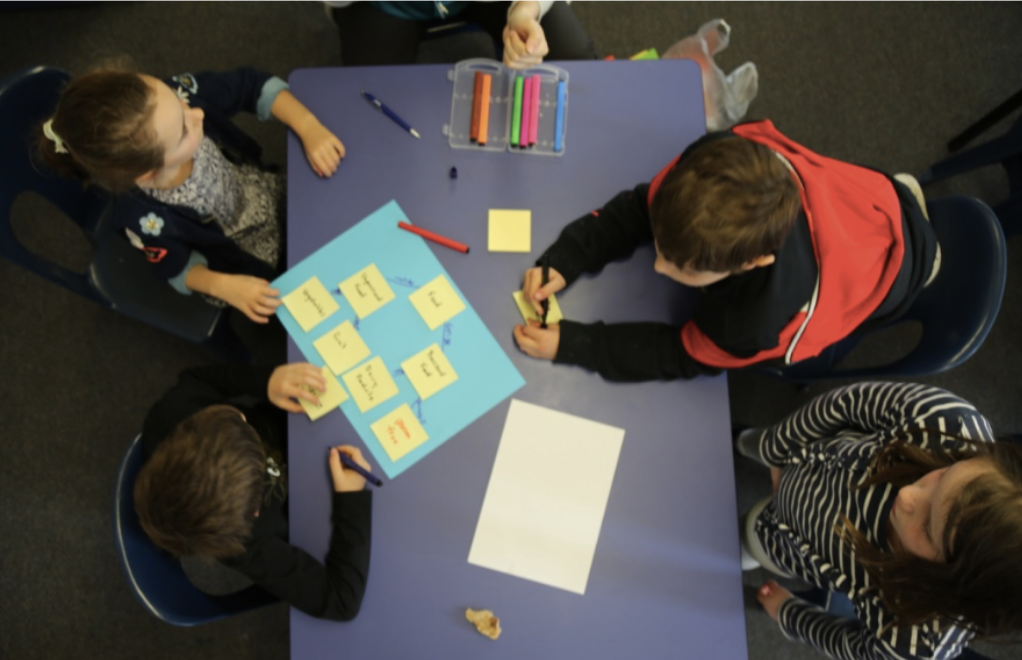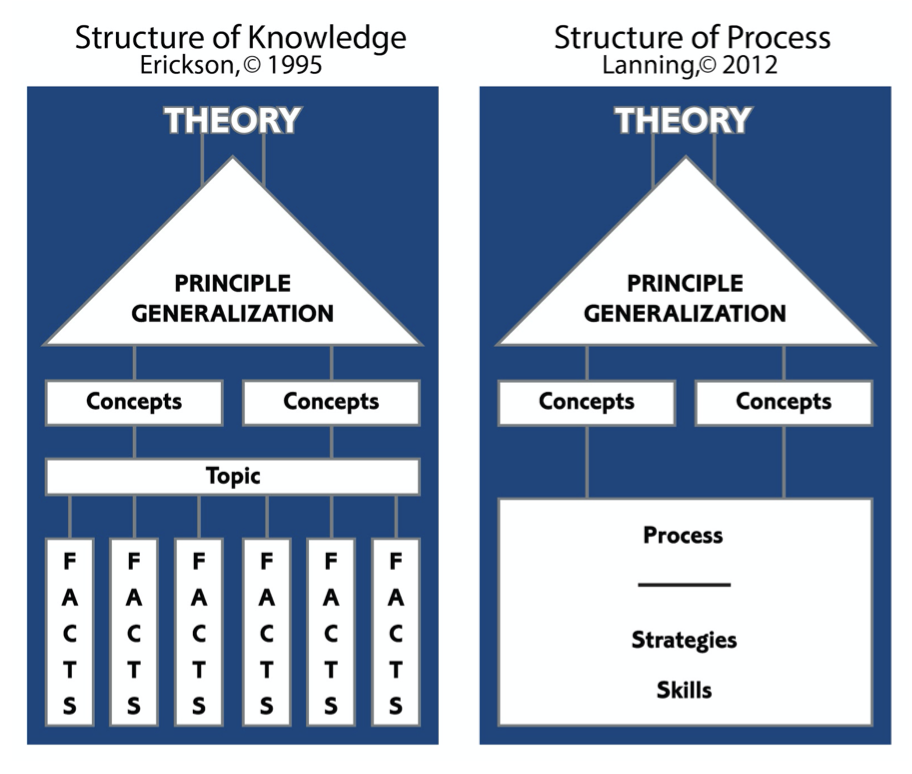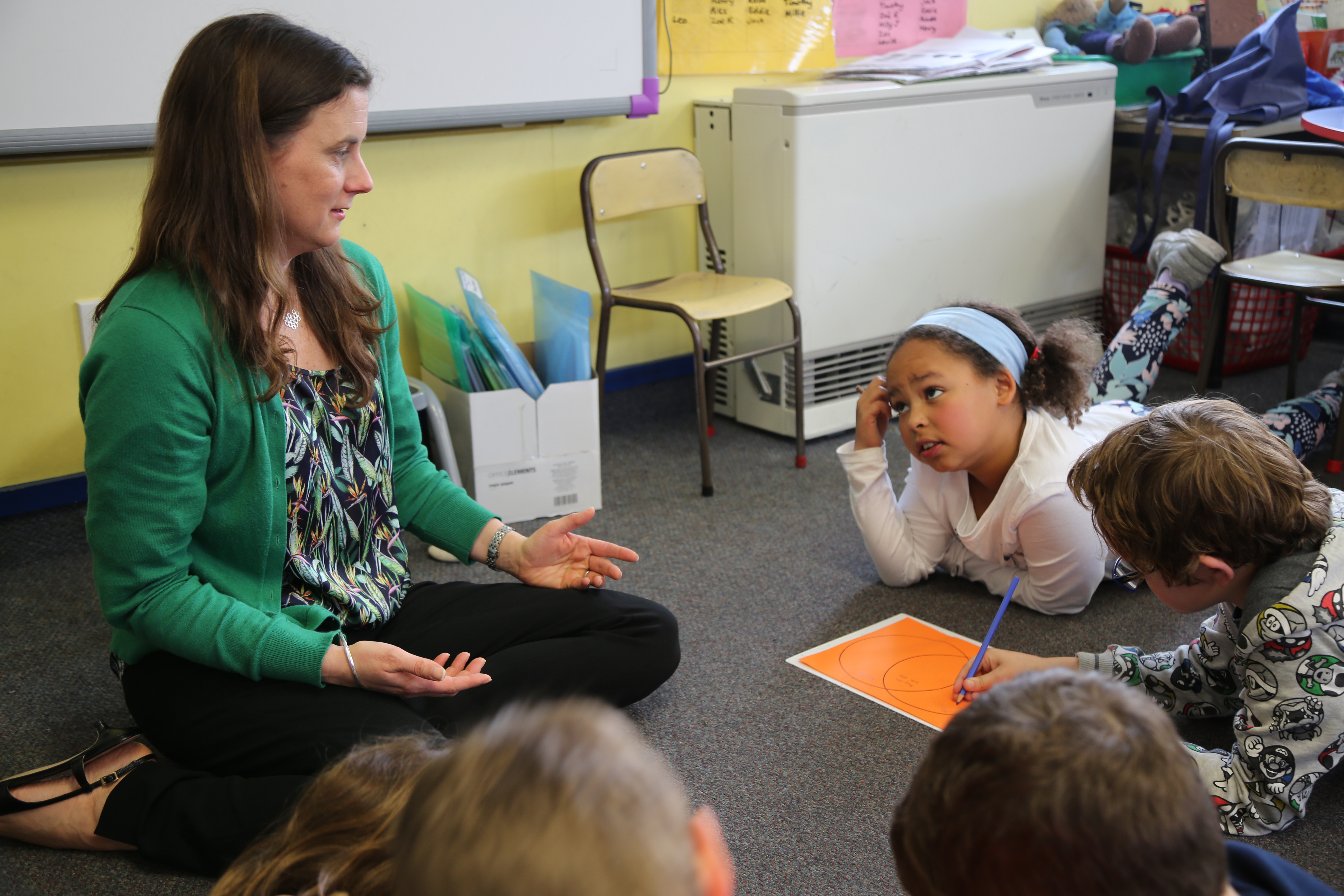by Rachel French
Welcome to our new ‘Myth Busters’ blog series, where we aim to debunk common misconceptions related to Concept-Based Inquiry (Marschall & French, 2018).
Dispelling these misbeliefs is crucial so that educators like yourself are able to unlock the power of a Concept-Based Curriculum (Erickson, Lanning and French, 2017).
It is our mission to help teachers all over the world understand Concept-Based Inquiry so they can support their students in seeing patterns, making connections and transferring learning.

So, with that being said, let’s jump right into one of the most common misconceptions!
Myth 1: It is the concepts that are important – not the facts and skills!
I often wonder if this first false notion originated from a teacher hoping to be relieved of the textbook coverage burden.
Or, perhaps we assume that we can ask Google or Siri anything so there is no longer a need to learn facts…
In reality, this idea could not be further from the truth! Facts and skills are critical in a Concept-Based Inquiry.
Without real factual examples, we can’t expect students to fully understand a concept or conceptual ideas!
John Medina (2014) relates a lack of factual grounding to “playing intellectual air guitar” (p. 38).
The Structure of Knowledge and The Structure of Process
In order to truly appreciate the importance of facts and skills in a Concept-Based Curriculum, we must understand how knowledge and processes are structured.

The Structure of Knowledge and The Structure of Process
Shared with permission © Erickson (1995) and Lanning (2012).
In 1995, Dr. Lynn Erickson created a graphic representation of the ‘Structure of Knowledge’ and in 2012, Dr. Lois Lanning developed the complementary model the Structure of Process. Together the two structures provide a complete model of Concept-Based Curriculum.
The design of rigorous and engaging curriculum requires an understanding of the different levels of both the Structure of Knowledge and the Structure of Process and the interplay between each level in curriculum design (Erickson, Lanning and French, 2017).
Using the Structures of Knowledge and Process (Erickson & Lanning, 2014) we work from the bottom up; lower levels of the model provide the foundation for understanding concepts and articulating the relationships between concepts in the form of generalizations.
“Skipping over” the lower parts of each model ends in the creation of understandings that are inaccurate or overgeneralized.
Myth busted…
There is a common saying that many school curriculums are “an inch deep and a mile wide.” So, if you feel you are racing to cover content, know that you are not alone!
The effective implementation of a three-dimensional, Concept-Based model in the classroom will actually HELP in reducing curriculum overload. A Concept-Based Inquiry approach builds brain schema for connecting new knowledge onto prior conceptual structures in the brain.
So you see, as facts and skills are the foundation for understanding concepts and building conceptual understanding, it is an absolute myth that” facts and skills are not important in Concept-Based Inquiry.”
Join us for our next blog in the series, looking at why “bigger” is not always better!
 Rachel French
Rachel French
Concept-Based Consultant and Coach
Bestselling Author
Director of Professional Learning International and Co-founder of Connect the Dots International
Twitter: https://twitter.com/ProLearnInt
Facebook Group: https://www.facebook.com/groups/conceptbasedinquiry
Linked In: https://www.linkedin.com/in/rachel-french-pli/
References
Erickson, H., & Lanning, L. (2014). Transitioning to Concept-Based Curriculum and Instruction. Thousand Oaks, California: Corwin.
Erickson, H., Lanning, L., & French, R. (2017) Concept-Based Curriculum and Instruction for the Thinking Classroom. Thousand Oaks, California: Corwin.
Marschall, C., & French, R. (2018) Concept-Based Inquiry in Action. Thousand Oaks, California: Corwin.
Medina, J. (2014). Brain Rules. [S.I.]: Pear Press.
